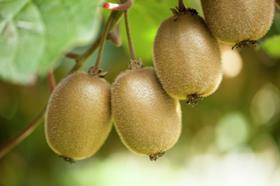
A research team comprised of scientists from around the world has discovered a sex determining gene in kiwifruit that could potentially lead to the breeding of hermaphrodite varieties.
New Zealand-based Plant & Food Research scientists and their research partners in Japan and the US identified a gene calledFriendly Boy (FrBy), which is necessary for pollen production and is found naturally in Y chromosomes of male kiwifruit plants.
It is the second sex-determinant discovered in kiwifruit afterShy Girl (SyGI), which suppresses fruit production in male kiwifruit plants.
“We overexpressed theFrBygene identified by our Japanese research partner in rapid-flowering kiwifruit plants,” said Sarah Pilkington, Plant & Food Research scientist.
“We found that expression ofFrByin female kiwifruit resulted in hermaphrodite plants, which means the female plants could both produce and receive pollen, making them capable of self-fertilisation.”
The results of this study pave the way for the potential development of hermaphrodite kiwifruit.
Self-fertile kiwifruit cultivars could remove the current need for pollen supplementation, saving land and labour costs.
The study has also validated the “two-mutation model” in sex acquisition of plants proposed Deborah and Brian Charlesworth in 1978.
The model suggests that at least two gene mutations, one affecting ovule (female) production and one affecting pollen (male) production, are necessary to transform a hermaphrodite species into one with separate sexes.






No comments yet